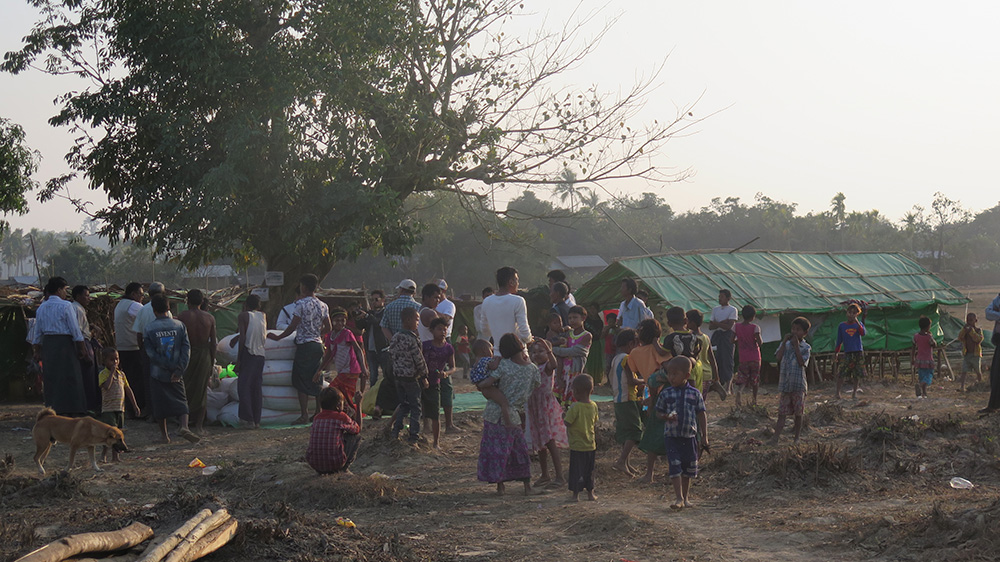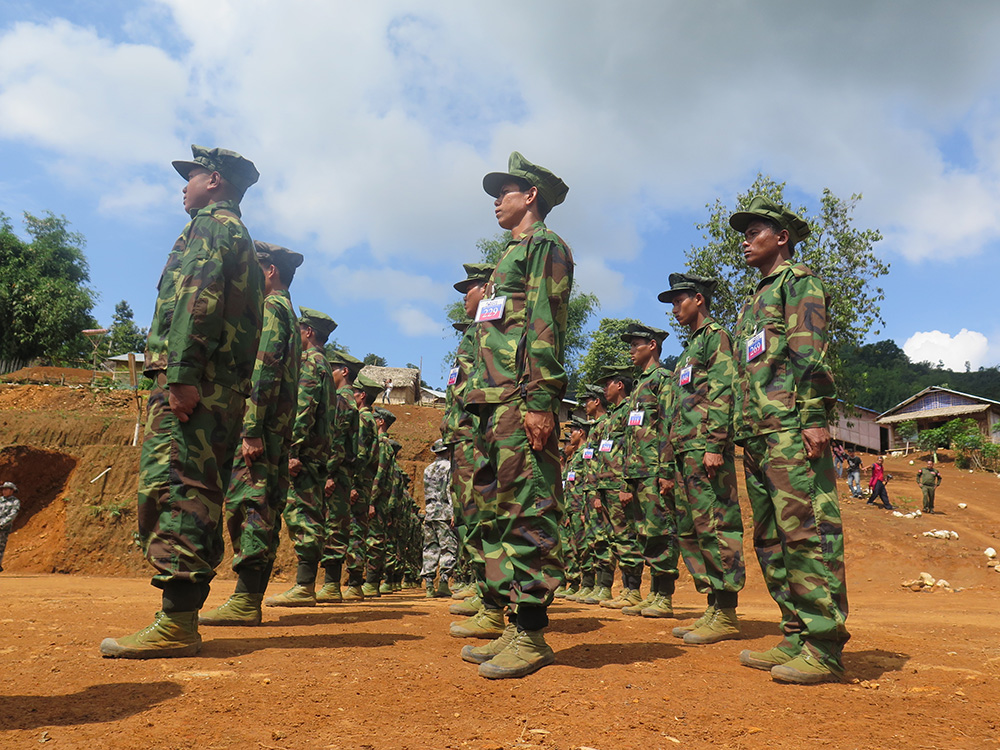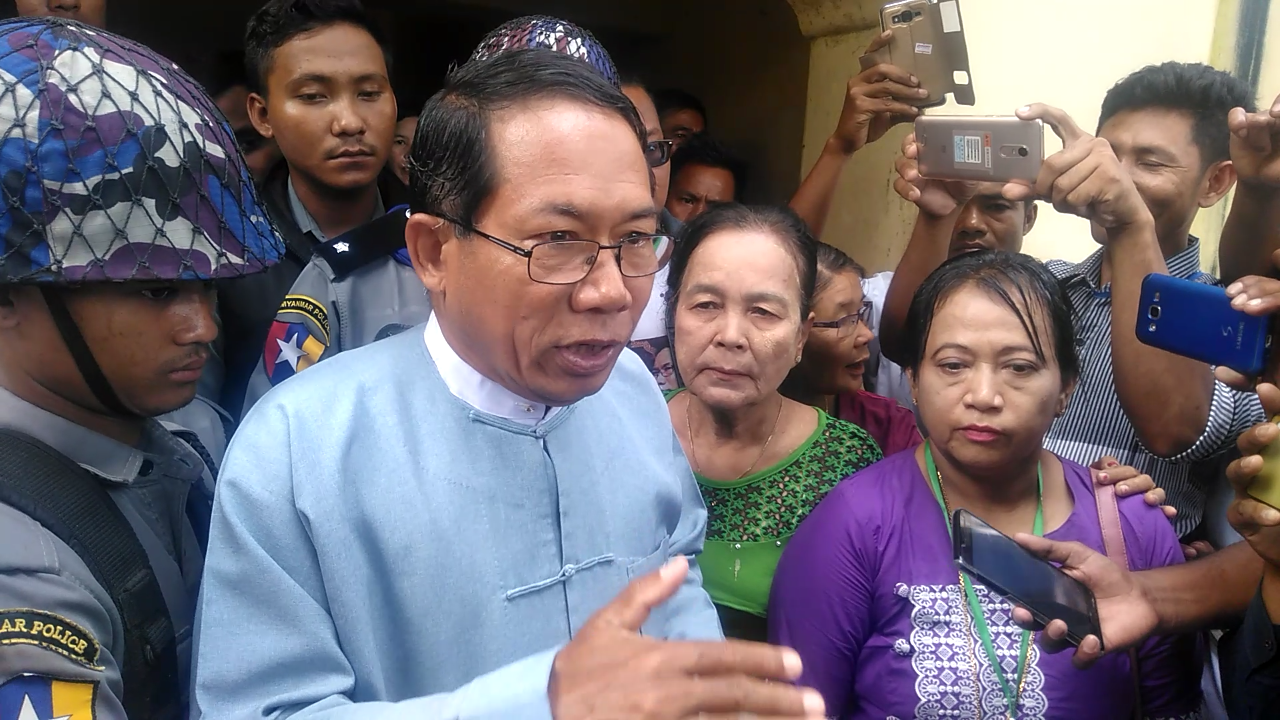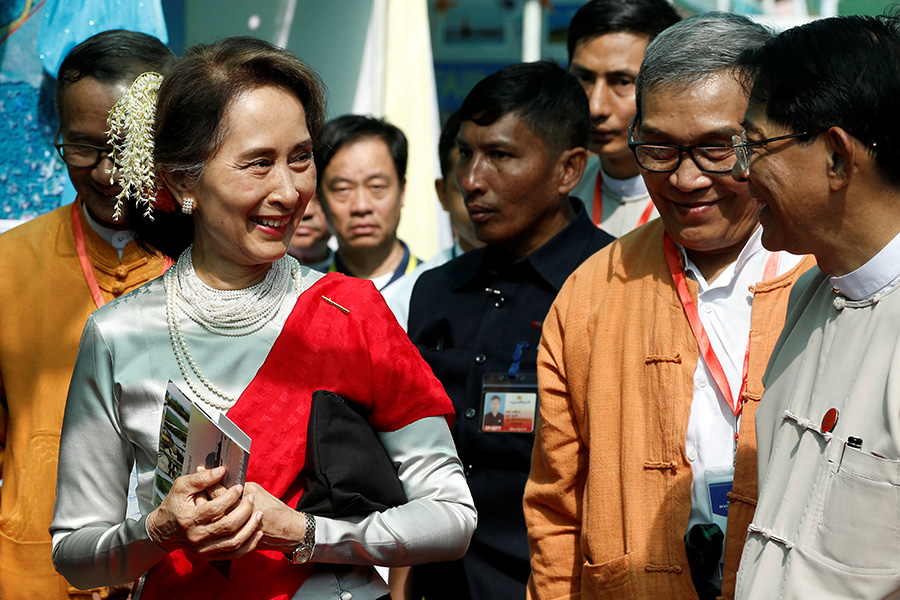On Jan. 4—Myanmar’s Independence Day—the Arakan Army (AA), an ethnic Arakanese armed group, launched coordinated attacks on four police outposts in northern Rakhine State. The attacks killed several policemen and sent a signal to the central government and the military that the AA would launch a series of attacks in the following weeks and months. It did. This week, the AA announced it had occupied a temporary tactical command base and apprehended 11 prisoners of war during a clash with Myanmar Army (or Tatmadaw) troops near northern Rakhine State’s Buthidaung Township on March 9.
The escalation of the conflict in Rakhine needs urgent attention. According to government spokesman U Zaw Htay, Union government leaders are concerned about the fighting between the military and the AA. “It has become a cause for concern not only in terms of security and development, but also in terms of the democratic transition. Leaders will review it and do their best. They have been holding talks.”
There have been rumors that the government will soon announce a state of emergency in Rakhine State, as then-President U Thein Sein did in June 2012 when the government needed to restore stability.
Indeed, the stability of Rakhine State is now in question. We have seen thousands of internally displaced persons (IDPs) flee the conflict amid reports of frequent ambushes and skirmishes between the AA and the Myanmar military. Tatmadaw leaders including commander-in-chief Senior General Min Aung Hlaing, who recently visited Thailand, are hoping the government will call a top-level security meeting to discuss the situation in Rakhine. But declaring a state of emergency will not solve the conflict; the government will have to intervene using political means.
Battle-hardened force
The AA was founded in 2009 but was little known until 2014, having emerged gradually at its base near the Kachin Independence Army (KIA) headquarters in Laiza, northern Myanmar. The AA is known to receive military training and weapons from Kachin, and is also believed to receive support from allied ethnic groups in northern Myanmar.
It has been several decades since ethnic Arakanese had an insurgent force devoted to fighting the central government. In the past, Arakanese insurgent forces were based at the former Karen headquarters known as Manerplaw. The best-known previous group was the Arakan Liberation Army, with which the AA has no affiliation.
AA soldiers have more battleground experience than their predecessors, having fought alongside their allies in northern Myanmar. Additionally, the group now seems to have strong support from the Rakhine population and sympathy from politicians. It is financially strong, and according to the Brussels-based International Crisis Group, is actively recruiting in Rakhine State. “The large Rakhine communities in Kachin State and Yangon are another important source of fighters; the militia is quite openly using some Rakhine Buddhist monasteries and Rakhine-owned businesses in Yangon, for example, as recruiting offices,” according to the ICG. Overseas Rakhine migrant workers are also sending money to the AA. “Although the AA denies it, the group—like nearly all armed groups in Myanmar—appears to be profiting from the drug trade.” This is hardly surprising, as several ethnic rebel groups in Myanmar are involved in the illicit trade.
‘Terrorist’ designation
In any case, the military has launched operations against the AA and declared it to be a “terrorist” group, actions that have only exacerbated the tensions. Right after the attacks in January, government spokesman U Zaw Htay made a threat, “Do they want to see a cycle of violence lasting decades? … I want to tell the Rakhine people who are supporting [the AA]: Don’t think about yourself, but think about your next generation.” He also accused the AA of having links to the Arakan Rohingya Salvation Army (ARSA), and said the AA was operating inside Bangladesh. This comment, too, only served to exacerbate tensions in the state.

In an exclusive interview with The Irrawaddy, AA chief Major-General Tun Myat Naing said the group’s political objective is to obtain confederate status for Rakhine State.
“We prefer [a confederation of states] like Wa State, which has a larger share of power in line with the Constitution,” he said, referring to the status of the AA’s ally, the United Wa State Army (UWSA), adding that a confederation is “better” than federalism.
Indeed, the goal of the AA’s frequent attacks is to establish a foothold in northern Rakhine State and to strengthen its position in any future peace negotiations.
But Rakhine State is facing a serious crisis. The ICG warned in its report in January, “The state is already afflicted by the Rohingya mass flight; an escalated fight between ethnic Rakhine and the government would represent a blow to Myanmar’s political transition to civilian rule and be difficult to stop.” Tatmadaw leaders are known to be upset that the AA did not assist its clearance operations following ARSA terrorists’ attacks on innocent villagers and police outposts in 2017. There were three groups involved in the conflict—the ARSA terrorists and villagers; the Tatmadaw; and Rakhine vigilantes—but the AA was nowhere to be found. In an attempt to discredit the AA, the military and the President’s Office accused the AA of having ties to ARSA.

AA spokesperson U Khaing Thukha denied the accusations, saying his organization had nothing to do with ARSA and was not involved in any illegal businesses, including drug trafficking.
“We have our own mission. The Myanmar government is trying to ruin our image by saying that we have an affiliation with ARSA. It’s dirty politics by them to portray us as a terrorist organization,” he said.
The AA promotes “The Way of the Rakhita”, or “the Arakan Dream”, a unifying message among the Arakan people that seeks to evoke memories of the once-great Arakanese Kingdom of centuries past.
Serious blunders
Since the National League for Democracy came to power after winning the 2015 general election, its government has made several serious blunders in Rakhine State. First, State Counselor Daw Aung San Suu Kyi installed a minority NLD government in the state, even though the main ethnic Arakanese party, the Arakan National Party (ANP), prevailed in the state election in 2015. Since then, there have been political tensions between leading ethnic Rakhine figures and Daw Aung San Suu Kyi’s NLD-led government. Slowly, AA leaders have infiltrated Rakhine State, setting up camps and establishing connections with political groups.
According to the ICG, “Under President Thein Sein, the government made some effort to consult Rakhine political leaders and include them in decision-making. It also used economic concessions strategically to create alliances. In contrast, the NLD ignored demands from the Arakan National Party—which won a clear majority of elected seats in the state in 2015 elections—to be given the chief minister position, instead appointing a relatively weak NLD member to the post.”
It added, “Following the ARSA attacks in 2016-17 and subsequent flight of 800,000 Rohingya Muslims, the central government has moved to assert further control over executive functions in Rakhine, rendering the state government largely powerless and sidelining the legislature.”
Mrauk-U protest
In January 2018, Dr. Aye Maung—a firebrand Rakhine politician and former ANP chairman known for stoking ethno-nationalism and for the shrewd campaigning ahead of a by-election in 2017 that established him as a political “brand” among his people—was arrested after the police violently cracked down on a protest in Mrauk-U. He and some other activists had planned to hold a ceremony in the ancient Arakanese capital to mark the anniversary of the kingdom’s fall to the Burmese centuries ago.

Dr. Aye Maung has been jailed since then, facing charges of high treason and incitement. (He resigned from the ANP on Nov. 27, 2017 due to an internal dispute, but the party later announced that his membership had been suspended.)
The military also angered AA leaders by ignoring their calls for a ceasefire and peace talks.
Last December, the military announced a unilateral ceasefire covering five regional military commands in Kachin and Shan states. The ceasefire is due to end on April 30. Rakhine State was not included in the area covered by the ceasefire, ostensibly due to the Tatmadaw’s ongoing operations against ARSA. However, AA leaders suspect the Tatmadaw planned to use the ceasefire to bring Army troops from Shan and Kachin States down to Rakhine State to fight against the AA. So far little concrete action has been taken to ease the fighting; instability has only increased.
Last February, Daw Aung San Suu Kyi made a rare visit to Ngapali, a beachside tourist hotspot in Rakhine, to attend a Japanese-sponsored investment fair.
Addressing the fair, the State Counselor emphasized responsible business practices.
“For too long the international community’s attention has been focused narrowly on negative aspects related to problems in north Rakhine rather than on the panoramic picture that shows the immense potential of this state for peace and prosperity,” she said. She is partly right, but if they truly want to increase investment, she and other government leaders must realize the need to address the widening conflict in Rakhine State. The government should open a direct dialogue with ANP leaders and consider releasing Dr. Aye Maung as a precursor to opening negotiations.
How to stabilize Rakhine State?
Rakhine is one of the poorest states in Myanmar. Past Union governments have ignored its deep-rooted troubles and the conflict there. International coverage of Rakhine has remained largely negative, and Western governments and China have both expressed concern over the expanding conflict. The narratives provided by both the government and the military do nothing but add fuel to the fire. They must refrain from making irresponsible statements if they are sincere about achieving stability and a political settlement in Rakhine State.

U Oo Hla Saw, secretary of the ANP, blamed the fighting on government mismanagement, a lack of jobs and the stalled national peace process, and said civilians were bearing the brunt of the violence.
“There are no job opportunities in Rakhine and democratic reforms have failed. And because the Union government has failed to handle the Rakhine issue effectively, radicalism is on the rise,” he told The Irrawaddy.
An EU delegation to Myanmar issued a statement early this year acknowledging the “deep-rooted historical grievances in Rakhine State [that] can only be solved through dialogue and an inclusive political process” and urged the military to expand its unilateral ceasefire to Rakhine State. As far as the military leaders are concerned, this is likely to fall on deaf ears. The office of Snr-Gen. Min Aung Hlaing did not consult the government before initiating the unilateral ceasefire.
The EU representatives called on the Tatmadaw to expand its unilateral ceasefire to Rakhine State. China said it “supports the efforts by the Myanmar side to maintain peace and stability” and called for restraint and the resolution of “relevant issues through dialogue and consultation”.
Worryingly, the AA has shown a capacity to grow, and the ability to sustain a long conflict with the Myanmar Army.
The government must resolve the Rakhine conflict through peaceful political means to bring all parties, including the AA, to the table. Releasing Dr. Aye Maung and other political prisoners and appointing influential Myanmar nationals with an understanding of Rakhine politics to serve as peace envoys would also be helpful. The conflict in Rakhine State should be resolved through dialogue. It is time for all sides to work together; if they do not, more innocent lives will be lost.
















